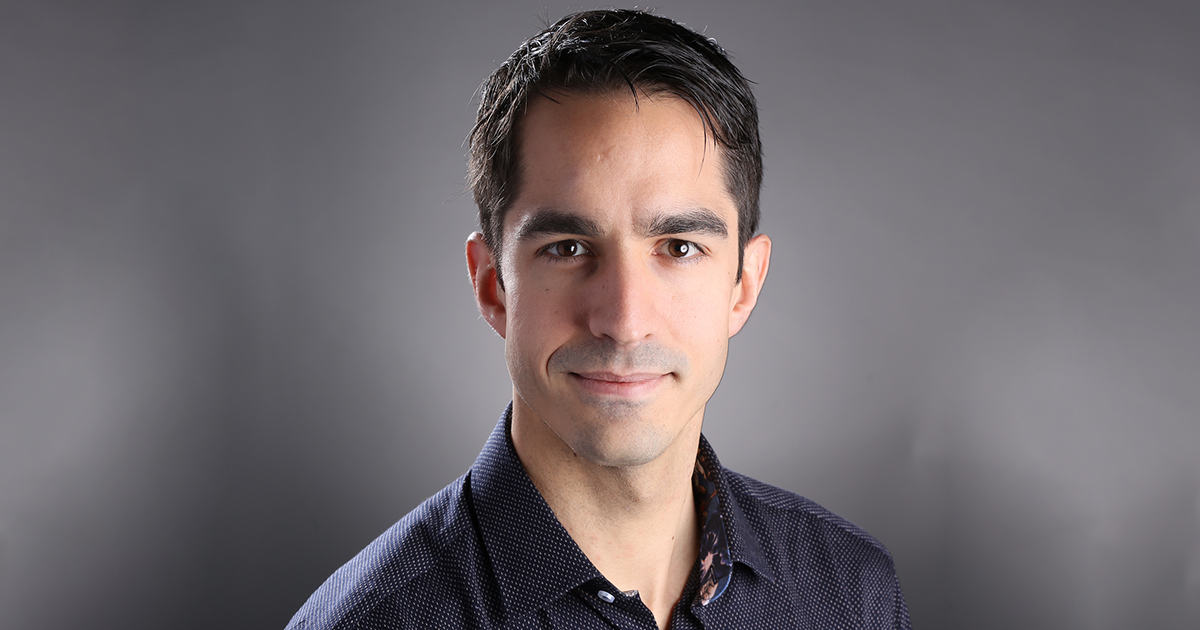Nouvelles
Polytechnique Montréal Professor Bruno Blais named to the New Digital Research Infrastructure Organization - NDRIO Researcher Council
Assistant Professor Bruno Blais (Department of Chemical Engineering) will contribute to the assessment of researchers’ needs within the NDRIO organization, which coordinates and funds strategic Canadian activities related to top-tier digital calculations for research, data management, and search engines.

Assistant Professor Bruno Blais (Department of Chemical Engineering)
The New Digital Research Infrastructure Organization - NDRIO is a Canadian non-profit organization established in 2019 that will support the advancement of researcher-focused, accountable, agile, strategic, and sustainable digital research infrastructure, for Canadian researchers. The organization will work with partners and stakeholders all across Canada, to provide research professionals with digital and support tools and services, as well as infrastructure that will foster cutting-edge, world-leading research for society’s benefit.
NDRIO regroups 135 universities, colleges, research hospitals, organizations, and institutes active in the Canadian research infrastructure ecosystem. The national organization has been granted $375 million dollars from Innovation, Science and Economic Development Canada over five years.
Professor Blais’ mandate will last for one year, renewable for up to three years. The NDRIO Researchers Council comprises 22 individuals - from among 142 candidates – who were selected by an esteemed committee.
“When I learned that the New Digital Research Infrastructure Organization was going to create a Researchers Council, I decided to submit a spontaneous application,” explained Bruno Blais.
“Since NDRIO’s strategic objectives mesh well with my own research activities, I can contribute my expertise in high performance computing, computer calculations, and software development for high performance calculating,” notes the Professor who is a specialist in chemical modelling, and who also designs tools to simulate unitary operations used to optimize their energy efficiency and reduce environmental impact.
A diversity of needs
As part of his participation in NDRIO’s Researchers Council, Professor Blais will gather the opinions and needs of the fellow Polytechnique community members engaged in research activities. Blais has already been able to identify several research projects that may pique the interest of the Council, given growing and diversifying reliance on digital research infrastructure in Canada.
“Needs are rapidly evolving, and digital infrastructure is no longer reserved for more ‘classical’ fields such as digital simulation or artificial intelligence. We’re noticing that it’s branching out into many other fields, such as health and the humanities,” adds Blais.
With the increase in the digital research infrastructure users, Professor Blais can see additional needs in terms of consolidating software and training resources.
“Using digital research infrastructure comes with a pretty steep learning curve. In addition to the training offered by organizations such as Compute Canada and Calcul Québec, we need generalized training programs for scientists and researchers who need to use high-performance infrastructure, high performance calculating and cutting edge software. We also need to design and develop new user interfaces, » Blais adds.
“On the other hand, we also need freeware that’s able to be maintained and lasts over the long term, to use digital research infrastructure. Often, software has a short lifespan: its developed during a research project, then abandoned. It’s like building a lab that no one gets access to! The freeware question is another challenge that the Researchers Council is likely to be interested in addressing,” muses Professor Blais.
The Polytechnique Professor further believes that an expansion of Canada’s computing resources will be beneficial in terms of increasing the country’s overall processing capacity, but above all, that it will help facilitate access for a larger number of researchers.
“There’s genuine interest in several fields, and right now, demand is growing at a rate that surpasses what we can offer. We need to take some big steps to meet that demand, and through the NDRIO we can do that. I see the evolution of digital research infrastructure as an essential tool in order for research in Canada to fully bloom,” concludes Blais.
Congratulations to Professor Blais on his unique nomination!
Learn more
Professor Bruno Blais expertise
Department of Chemical Engineering website
New Digital Research Infrastructure Organization – NDRIO website
Innovation, Science, and Economic Development Canada website




